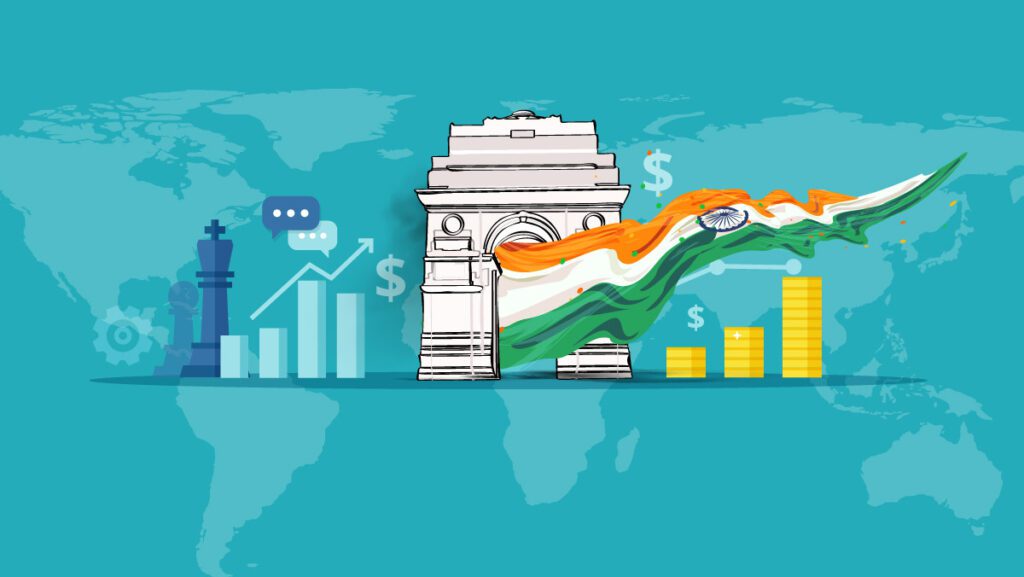
War has always had a rippling effect on geopolitics and global economies, more so than ever in today’s interconnected and globalized world. India, which has maintained a friendly political relationship with Russia since 1970, finds itself at a crossroads in the wake of recent global events.
As the Russian Ukrainian war rages on, previously well-aligned Russian trade partners are forced to make a difficult choice. The discourse surrounding conflict has tended to split into a black or white stance, with or against, pro or anti.
The discourse in itself, coupled with the rippling consequences of either choice, has set India on a path to determine its nation’s destiny for the coming decades. The Russian Ukrainian conflict has compelled India to reconsider its relationships with global trade partners and redefine its stance on the global economic and trade systems.
A Loss of Lives and a Loss of Face
Russia’s reputation as a fearsome military monster that should not be crossed has been somewhat tarnished by mounting losses and limited progress, as well as their apparent inability to stand against a domestic resistance backed by NATO weaponry and equipment.
The Indian government, as a result, has had a rude awakening regarding its military technology partnership with Russia following its invasion of Ukraine.
Russian heavy weaponry breaks down and ceases to operate, precision-guided bombs repeatedly miss their intended targets, while Russian tanks seem to attract enemy missiles like magnets instead of fulfilling their intended purpose of being harder to hit
All t comes at a time when India began integrating Russia’s S-400 missile defense system as a key component of its air defense.
Because the Russian system has yet to be tested in battle, India recognizes that widespread dissatisfaction with Russian-made weaponry has resulted in a tremendous devaluation of such technology and, as a result, its value as a deterrent against foreign powers.
Disillusioned by this reality, India is seeking to diversify its technological partnerships.
Waning Resource Exchange
India’s favor toward Russia stems from the latter’s military technological capability as well as its readiness and willingness to trade and exchange other important technologies relevant to India’s national interests and security.
However, Russia, preoccupied with its own NATO-backed, yellow and blue colored problems, has had to prioritize its own military weapon production and thus is less able to supply crucial components to India’s military.
Under growing pressure to create heavy weapons for its own requirements has resulted in diminishing Russian arms shipments, a scarcity of critical components for new weapons, and rising Russian technological dependency on China.
India recognizes that its long-term strategic partner may no longer be a stable and useful supplier of military technology, at least not as a primary supplier.
India’s Data Might not be Safe with Russia Anymore
With large companies like Nokia and Samsung pulling completely out of Russia, this leaves their telecommunications infrastructure firmly in the hands of China. Even before this exodus, Chinese telecom companies held a significant position in the country’s telecom infrastructure.
The Chinese government already has access to all technical data in certain cases, like the S-400, because China acquired the system from Russia. Unsurprisingly, India feels that their confidential data is not safe with Russia anymore.
Fear of Sanction Spillover
India’s reluctance to condemn the country’s aggression against Ukraine has placed it in the scope of suspicion by western powers, given the general attitude of ‘with us or against us’ that overtakes public opinion surrounding the conflict.
Not only that, but the trust that Indian authorities had placed in the globalized economic system that many Indians have been embracing for decades has shown its dark side.
Since Iran was locked out of using the SWIFT payment systems, Indian decision-makers became increasingly worried that the very global systems that enrich their economy could be weaponized against them.
The most recent events in Eastern Europe as only accentuated this fear, and thus India has adopted a very pragmatic view of its current global standing and those of its military and economic partners.
In India, Russia’s invasion of Ukraine has resulted in a loss of faith in both Russian and Western technical sources and a heightened awareness of any substantial technological dependency on one partner nation. New Delhi’s strengthened confidence in self-reliance may slow India’s economic development in the medium term, but the country’s domestic consensus for technical and strategic autonomy is here to stay.